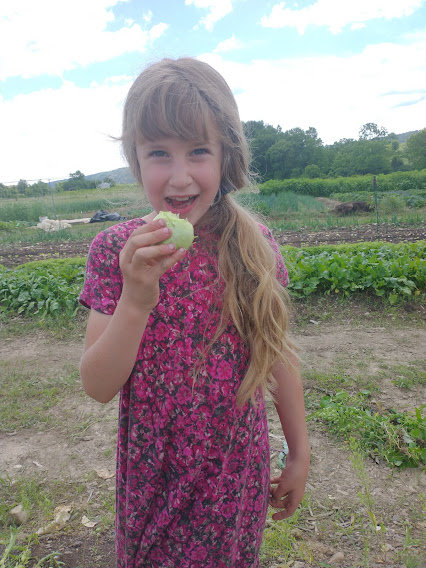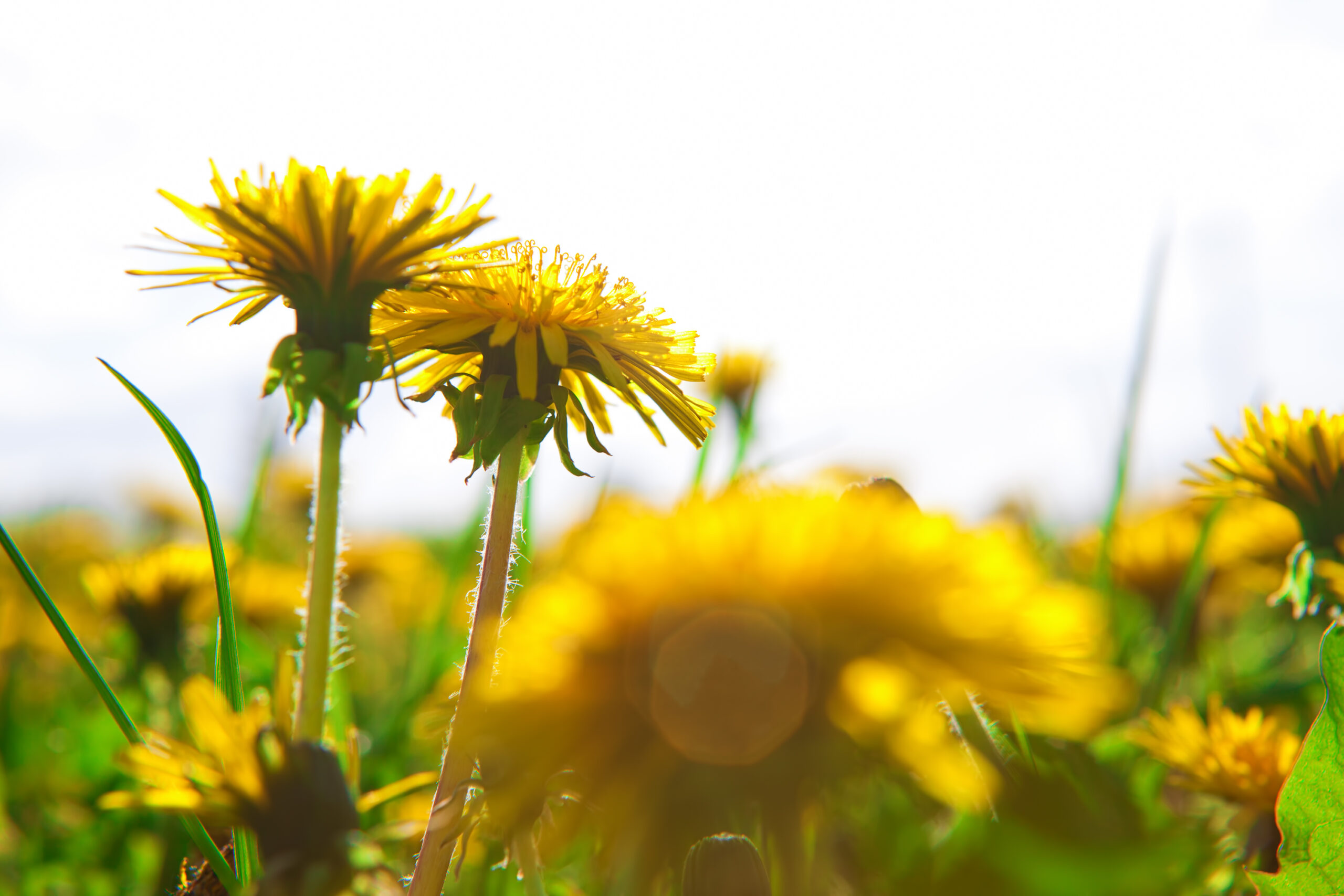What if I told you that there was a green that was extremely high in Vitamin K, high in iron and Vitamins A and C?
It also has calcium, potassium, folate and magnesium. It has high antioxidants, and many anti-inflammatory compounds.
It has even been shown to promote the death of colon cancer cells in the laboratory!
If I offered you a bag of it, would you want to try it?
What if I told you it was dandelion?
What if I pointed out that it’s growing at your feet and offered you as much of it as you wanted to dig?
Would you try it then? Or would you feel kind of nervous?
Or maybe put off by the fact that this is a- a weed. Like a weed that people kill.
If it’s not in a plastic bag, it’s harder to think of it as food.
Think about that sentence. Think about it’s implications.
For thousands of years, people have been eating the food that grows around them. They learned to recognize it, harvest it (there are tricks to harvesting dandelion) prepare it and eat it. They learned to read the landscape to figure out where the best spots would be to get good food.
All without plastic.
Plastic wasn’t even invented.
And now… what happened?
Most of us feel more than a little nervous eating something entirely on our own. We don’t know how to identify it, harvest it, prepare it, and eat it.
We definitely aren’t looking for places to forage as we zip from place to place. And we’re mildly disgusted when something happens to remind us that food, like, grows in dirt.
What is lost when we’re this disconnected from the way things work? When plastic, rather than our own knowledge, determines what is food for us?
Here are a few things I thought of:
- There’s a lot of plastic. Which ends up in the landfill, which ends up polluting land and water and air.
- We lose nutrients. Check out the nutrition of many weeds that grow in gardens. Dandelion, chickweed, lambs quarters, amaranth- they all outrank most of our veggies in the nutrition department. These days, most of us need all the nutrition we can get.
- We don’t notice as much. Once you’ve eaten something, especially if you liked it, you notice it. It pops out at you no matter where you go. You start to think in terms of what this plant needs. Which leads to the next point.
- We care less, when we eat only out of plastic. Let’s face it. Most of us care a lot about what we eat. Now, if you tell me I should care about the fact that native wild onions are being crowded out by European invasives, I will probably shrug. But if you give me a taste test and I realize how sweet and delicious native wild onions are compared to the European garlic, well, suddenly I sit up and notice. I want more of this. I want this to spread. Conservation that focuses only on looking is bound to run out of steam quicker than conservation that focuses on eating. So you want to preserve good things? You want people to care? Find out how to get them to eat it.
- If people are disconnected from their food, they won’t realize when food producing land is destroyed. It simply won’t register. But land that produces an abundance of food is a precious resource. And it sure isn’t getting more common. Every day more land, both wild and farmed, that produces delicious food, is paved over. And I don’t know that most people realize what that means.
- There is less food security. If for some reason we couldn’t get food from the store, my family would suffer. However, there are many plants growing on our property that we could eat right now. How many people would be less dependent on the grocery store that they can ill afford if they knew how to forage? How much healthier, happier and prouder would they be?
Wow, this sounds like a marketing message for foraging. It’s not.
Because the same things can be said about gardening.
And buying fresh from your local farmer is definitely next best!

Freshness means more nutrition too. And if you can get into the fact that food is surrounding you, a lot of opportunities open up.
-Julie


Fresh is Best! Totally agree!
Well said! Beautifully written
Awh, thank you!